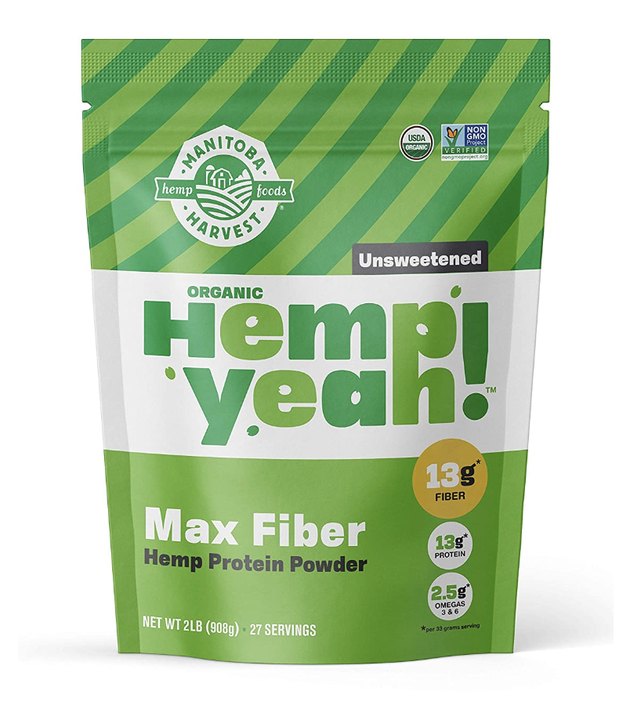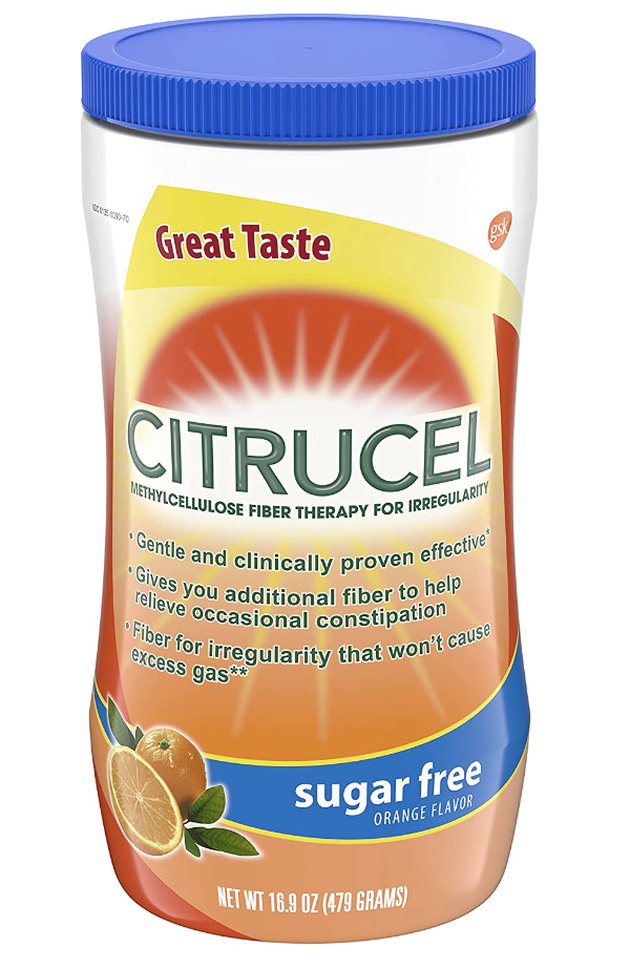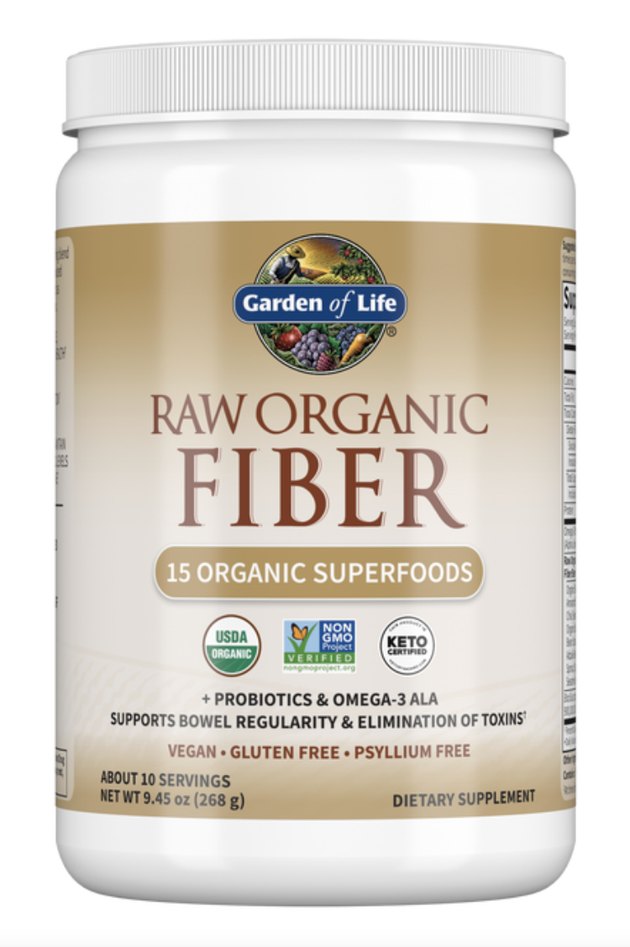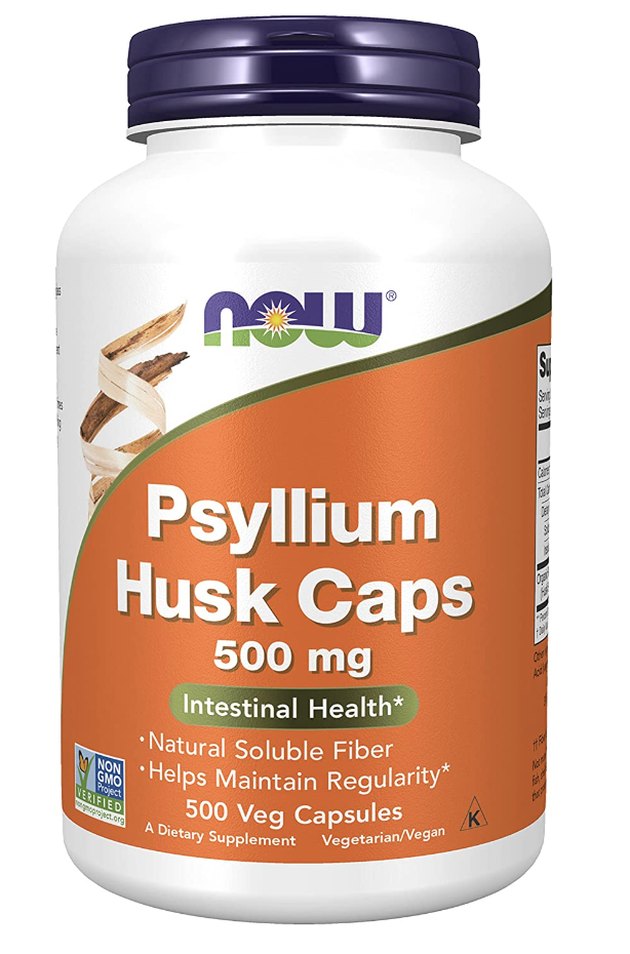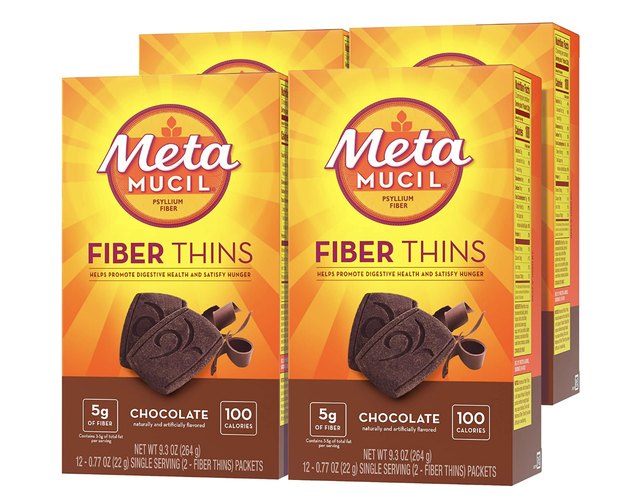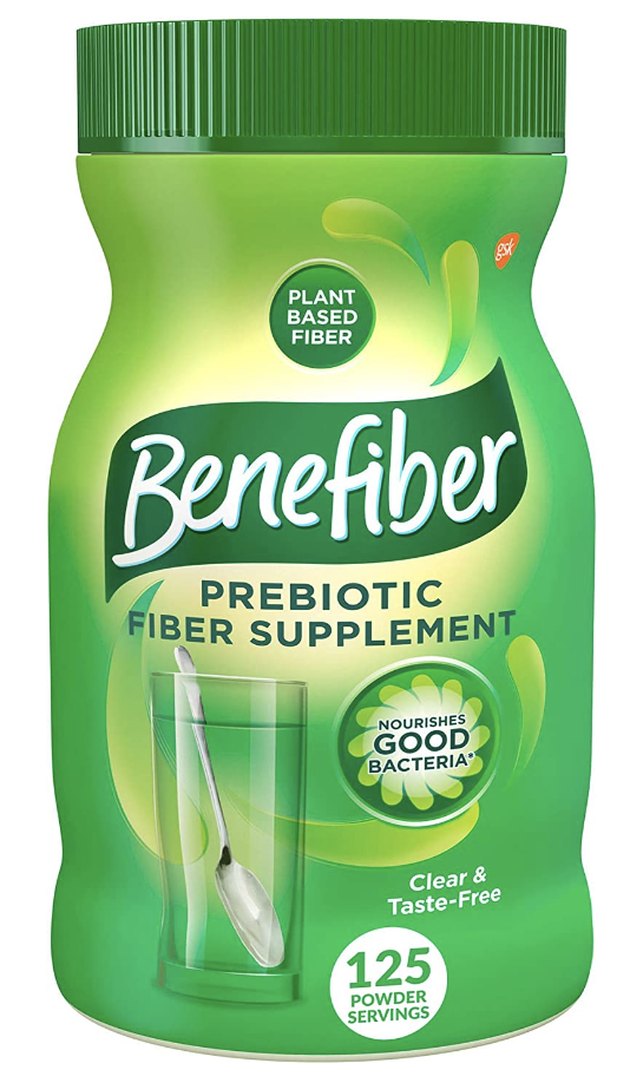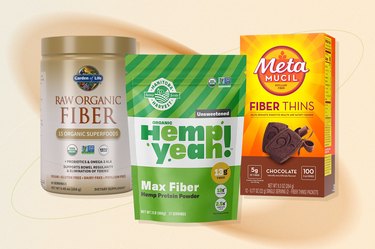
If you've been told you have diverticulitis, that means you've already been to a doctor — consider step one complete. If you only suspect you have it, a trip to your primary care provider is in order before you start any kind of treatment, including fiber supplements.
Diverticulitis is the worsened version of diverticulosis, which is when you have pockets in the walls of your colon. When those pockets become inflamed — that's the "itis" — you may have symptoms such as lower abdominal pain, fever, nausea and vomiting, according to Harvard Health Publishing.
Video of the Day
Video of the Day
If you have active symptoms of diverticulitis, gastroenterologist Elena A. Ivanina, DO, director of neurogastroenterology and motility at Lenox Hill Hospital, recommends avoiding fiber altogether. "Treatment may start with scaling back to a clear liquid diet or even not eating at all," she says.
Once your symptoms start to improve — usually within a few days — Dr. Ivanina suggests slowly adding fiber to your diet, about 10 to 15 grams per day until all of your symptoms are gone. Then it's time to get to work and build up to a diet rich in fiber.
Fruits, vegetables and whole grains should be your go-to for fiber, but if you're finding that you just can't get enough in your diet, you may want to supplement with a small amount.
The Academy of Nutrition and Dietetics recommends adults get around 14 grams of fiber per 1,000 calories, so usually that comes out to 25 to 38 grams per day.
Dr. Ivanina agrees, recommending everyone with no active symptoms of diverticulitis get 30 to 35 grams of fiber per day. Insoluble fiber is recommended, she says, because it can reduce the risk of diverticulitis, but she is also good with a mix of soluble and insoluble fiber supplements. (It's important to note that most fruits and vegetables are a mix of both soluble and insoluble fiber.)
With that in mind, here are the best fiber supplements for diverticulosis and non-symptomatic diverticulitis.
The Best Fiber Supplements for Diverticulitis
- Best Overall: Hemp Yeah! Organic Max Fiber Protein Powder ($24.43, Amazon)
- Best on a Budget: Citrucel Fiber Powder ($15.83, Amazon)
- Best Powder: Garden of Life Organic Raw Fiber Powder ($16.79, GardenofLife.com)
- Best Capsules: NOW Psyllium Husk Caps ($20.64, Amazon)
- Best Chewable: Metamucil Fiber Thins ($39.96, Amazon)
- Best Prebiotic: Benefiber Prebiotic Fiber Supplement ($21.83, Amazon)
How We Chose
We tapped Dr. Ivanina and relied on our writer's credentials as a registered dietitian to put together our top product picks below. Each supplement also meets the following criteria:
- Contains insoluble fiber or a mix of soluble and insoluble fiber
- Low or no added sugar
- Budget-friendly
- Widely available
Fing more information on how we choose and review products here.
1. Hemp Yeah! Organic Max Fiber Protein Powder
Pros
- Includes protein
- USDA organic
- No added sugar
Cons
- Some reviewers say it has a gritty taste and texture
Marketed as a protein powder, this fiber supplement is made from hemp seeds, which are almost entirely insoluble fiber, and it has 13 grams of dietary fiber per serving. This supplement also gives you 13 grams of protein per serving in addition to omega-3 fatty acids, which makes it an all-around healthy choice for your diet.
It is certified USDA organic and does not contain added sugars. This type of fiber can also be added to smoothies and baked goods or mixed into foods like yogurt or applesauce.
2. Citrucel Fiber Powder
Pros
- Pleasant orange flavor
- Blends into water easily
Cons
- Contains aspartame, which may not agree with everyone
Dr. Ivanina recommends Citrucel as an insoluble fiber choice. Each serving of Citrucel gives you 2 grams of fiber from methylcellulose. And if you're worried about taste, the orange flavor may make it a little easier to take your fiber.
This powder contains aspartame, which is an alternative sweetener, but Citrucel also makes the same product with sugar. If you're watching your sugar intake, make sure you check the label.
The makers of Citrucel urge you to drink enough water with this type of fiber — 16 ounces of water with each serving for the best effect.
3. Garden of Life Organic Raw Fiber Powder
Pros
- Plant-based protein
- Organic
- Gluten-free and sugar-free
- No artificial sweeteners
Cons
- You may have to start in small doses; nine grams of fiber can be too strong for some people
Garden of Life's fiber powder gives a whopping 9 grams of fiber from a blend of soluble and insoluble fiber. Because the fiber comes from a variety of plant-based protein sources, such as quinoa, buckwheat and flaxseed, you also get 7 grams of protein per serving.
Nine grams of fiber in a single supplement is a bit high if you're just starting out, so you can cut the serving in half and extend the life of the container.
This fiber powder is organic, gluten-free, sugar-free and free of artificial sweeteners.
4. NOW Psyllium Husk Caps
Pros
- Follows good manufacturing practices
- Gentle on the stomach
Cons
- May need to take multiple times per day to get maximum benefit
NOW Foods is a company that makes multiple supplements and adheres to the Food and Drug Administration's current Good Manufacturing Practices (cGMPs), which is a regulatory quality control program. These fiber capsules are made primarily from psyllium husk and are a blend of soluble and insoluble fiber.
Each serving (that's three capsules) gives you 2.6 grams of fiber, which is a good amount if you are just starting out with your fiber supplementation. The capsules can be a convenient advantage because they do not need to be mixed into water — although you still need to drink a glass of water when you take them.
The manufacturers state that you can take this multiple times a day, but it's best to start slow and work your way up to larger amounts of supplemental fiber.
5. Metamucil Fiber Thins
Pros
- Sweet taste
- Blend of fiber sources including psyllium, inulin and oats
Cons
- Contains soy
- Not gluten-free
If you like to eat your fiber and your favorite fruit isn't giving you the satisfaction you want, try one of these fiber thins for that sweet craving. Each serving gives you 5 grams of a blend of soluble and insoluble fiber from psyllium, inulin and oats.
These have 1 teaspoon (4 grams) of added sugar per serving and are not gluten-free. They also contain soy, so if this is an allergy for you, you'll want to avoid this fiber type.
It is still recommended that you eat this with a glass of water because of the additional fiber intake.
6. Benefiber Prebiotic Fiber Supplement
Pros
- Contains healthy bacteria
- Taste-free
- Mixes easily into water
Cons
- Some reviewers say it can cause excess gas
This powder by Benefiber has fiber to help move along your bowel movements, but also prebiotics to help host and restore good bacteria levels in your gut. Prebiotics are also known to help reduce inflammation in the gut, which is important for someone who has an inflammatory condition like diverticulitis, per the Cleveland Clinic.
Just two teaspoons mixed into a four to eight-ounce glass of water can help keep you regular and relieve symptoms gastrointestinal distress. Plus, the powder is unflavored, easy to mix and does not contain gluten, sugar or artificial flavors.
What to Look for in a Fiber Supplement
1. Fiber Type
As we mentioned above, insoluble fiber or a mix of soluble and insoluble fiber is the way to go if you have diverticulosis or non-symptomatic diverticulitis. Insoluble fiber helps food pass more quickly through the colon and is found in wheat bran, vegetables and whole grains, per Mount Sinai.
2. Low or No Added Sugar
Many fiber supplements add sugar to make the taste better, but watch how much is in your supplement (some have up to 4 teaspoons per serving).
The American Heart Association recommends people assigned female at birth should not have any more than 6 teaspoons of added sugar in a day and those assigned male at birth should keep it below 9 teaspoons per day.
3. Fiber Dose
Look for a supplement with a lower dose of fiber — just a few grams — if you're just starting out. Alternatively, look for a powder rather than a capsule, so you can adjust the dose if you need to.
Precautions
A word of caution about increasing your fiber:
- Increase your intake gradually.
- Increase water along with fiber to reduce the risk of constipation.
- Do not get all of your fiber from supplements — fiber-rich foods provide additional nutrients that help keep you healthy.
Experts from Mount Sinai suggest you take fiber at least two to three hours apart from your medication in order for both to be effective.
Fiber supplements are generally not recommended for children, unless specifically prescribed by a doctor. In addition, if you have other autoimmune gastrointestinal conditions or active symptoms of diverticulitis, it's best to speak with your doctor before taking a fiber supplement.
Was this article helpful?
150 Characters Max
0/150
Thank you for sharing!
Thank you for your feedback!
Is this an emergency? If you are experiencing serious medical symptoms, please see the National Library of Medicine’s list of signs you need emergency medical attention or call 911.
